Steaming vegetables is an underutilized cooking technique in my kitchen. After my last trip to Japan, I pledged to remedy the issue. This simple, direct method of cooking is one of the reasons I love eating in Japan. I mean, let’s be honest, I probably like steamed vegetables more than most, but I enjoy them exponentially more there. Somehow, many of the things I love about traveling there are summed up in this simple preparation.
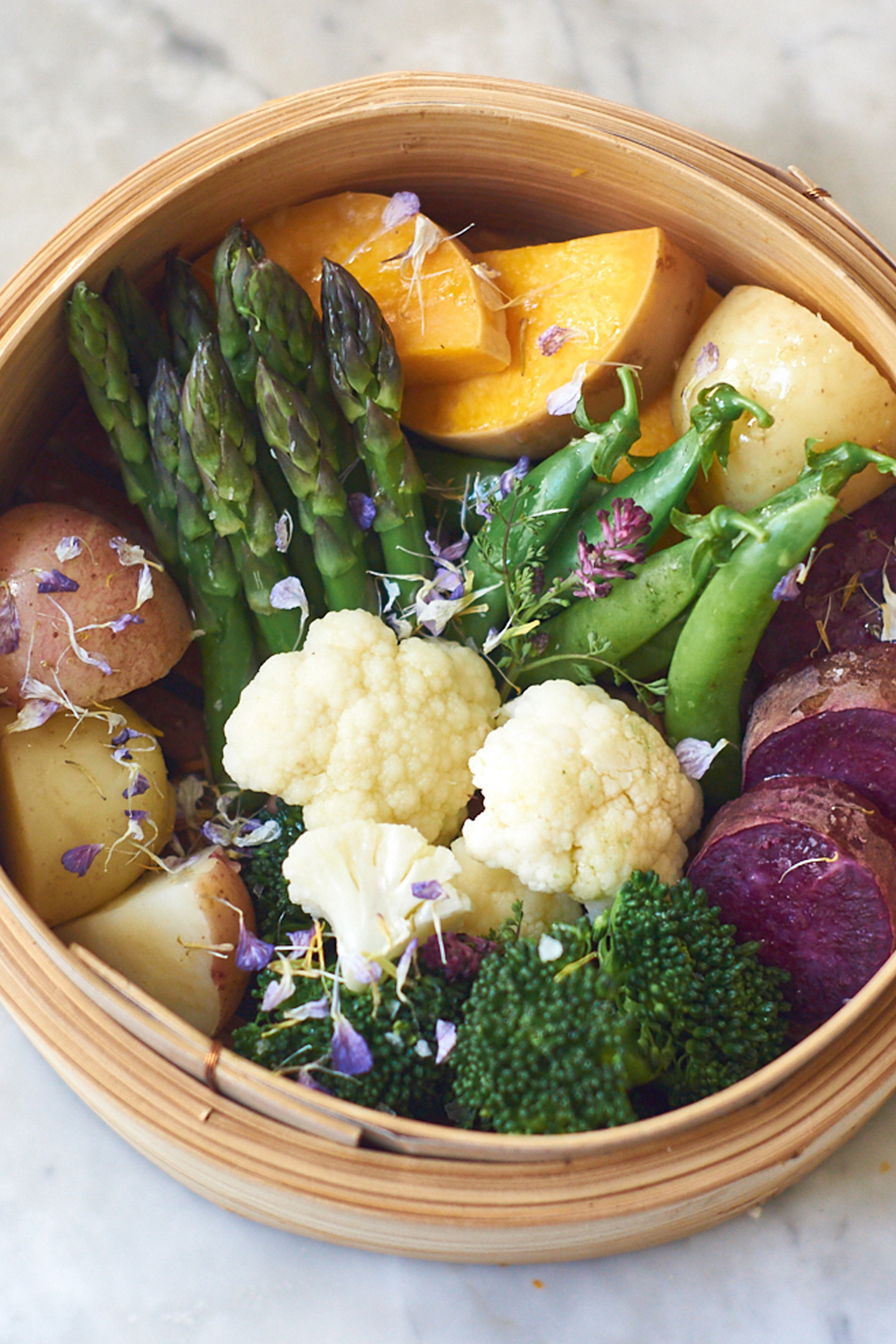
I’d often receive a sampling of seasonal produce as part of a combination lunch. The vegetables arrived at the table beautifully arranged in the bamboo basket they were steamed in. I’d work my way through a rainbow of vibrant, tender potatoes, squash, mushrooms, broccoli rabe, and the like, sometimes adding a pinch of zesty shichimi togarashi, but more often than not, a casual toss of a few grains of salt would be all. Each meal was a vibrant, satisfying reminder of just how good vegetables can be when prepared simply with care and intent. Their natural flavors coming through direct and perfect.
Break out the Steamer!
After this past trip, my inexpensive, tri-level bamboo steamer was promptly dusted upon my arrival home, and put into proper rotation. The thing that never ceases to surprise me is the speed even the most hearty chunks of root vegetables or squash become tender – ten minutes, often less.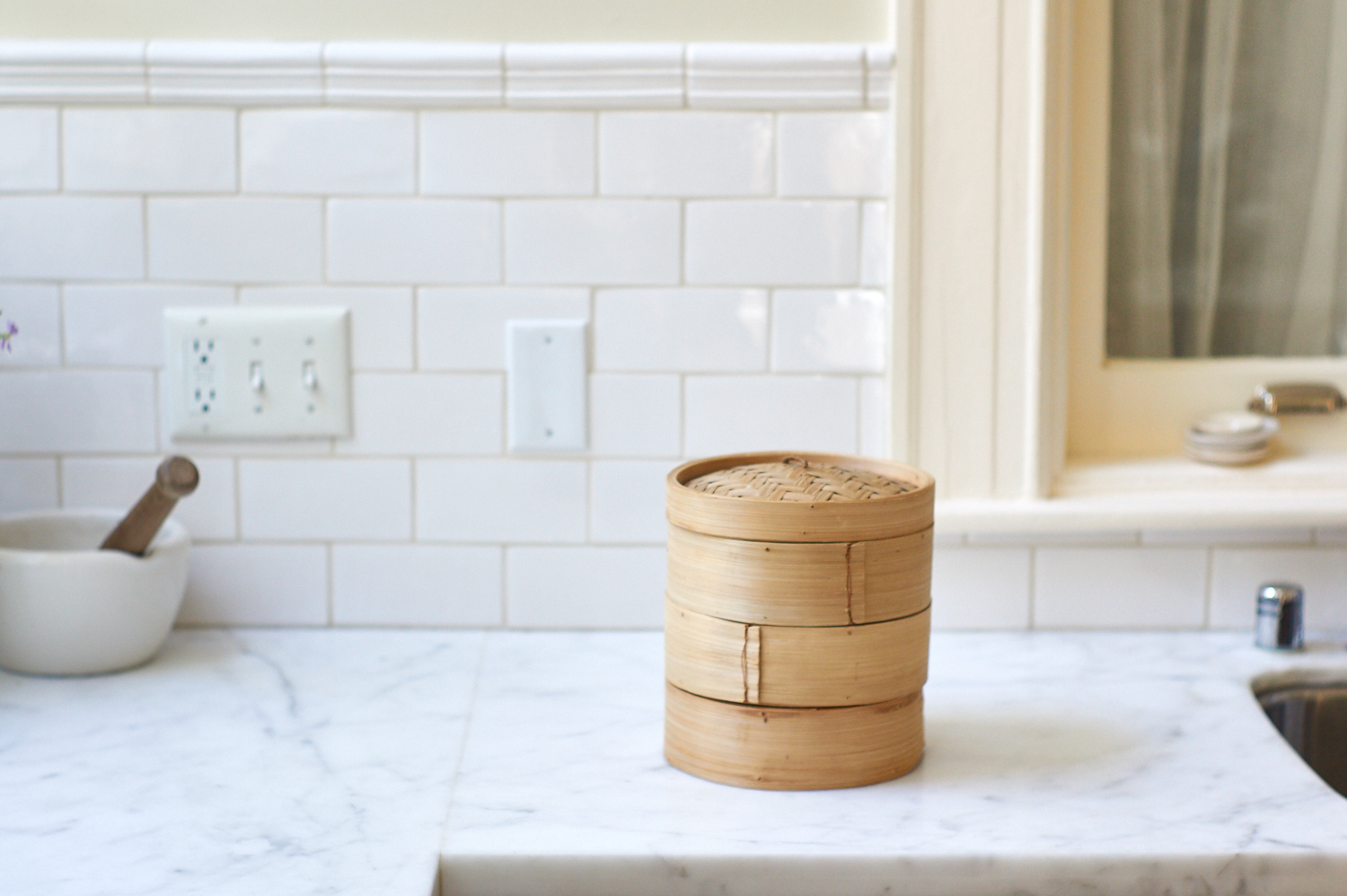
Choosing a Steamer
Bamboo steamers are easy to come by, and relatively inexpensive. Go this route if you aren’t sure how often you’ll use your steamer. The one downside is they take up a good amount of storage space, not much more than a big pot, but still. These steamers are available in a range of diameters, and are made of interlocking trays intended for stacking on atop of the other. Placed above simmering water, the steam from the water rises through the trays and cooks the food. It’s a simple premise that works astoundingly well. I use three trays, but you can certainly go up or down a level.
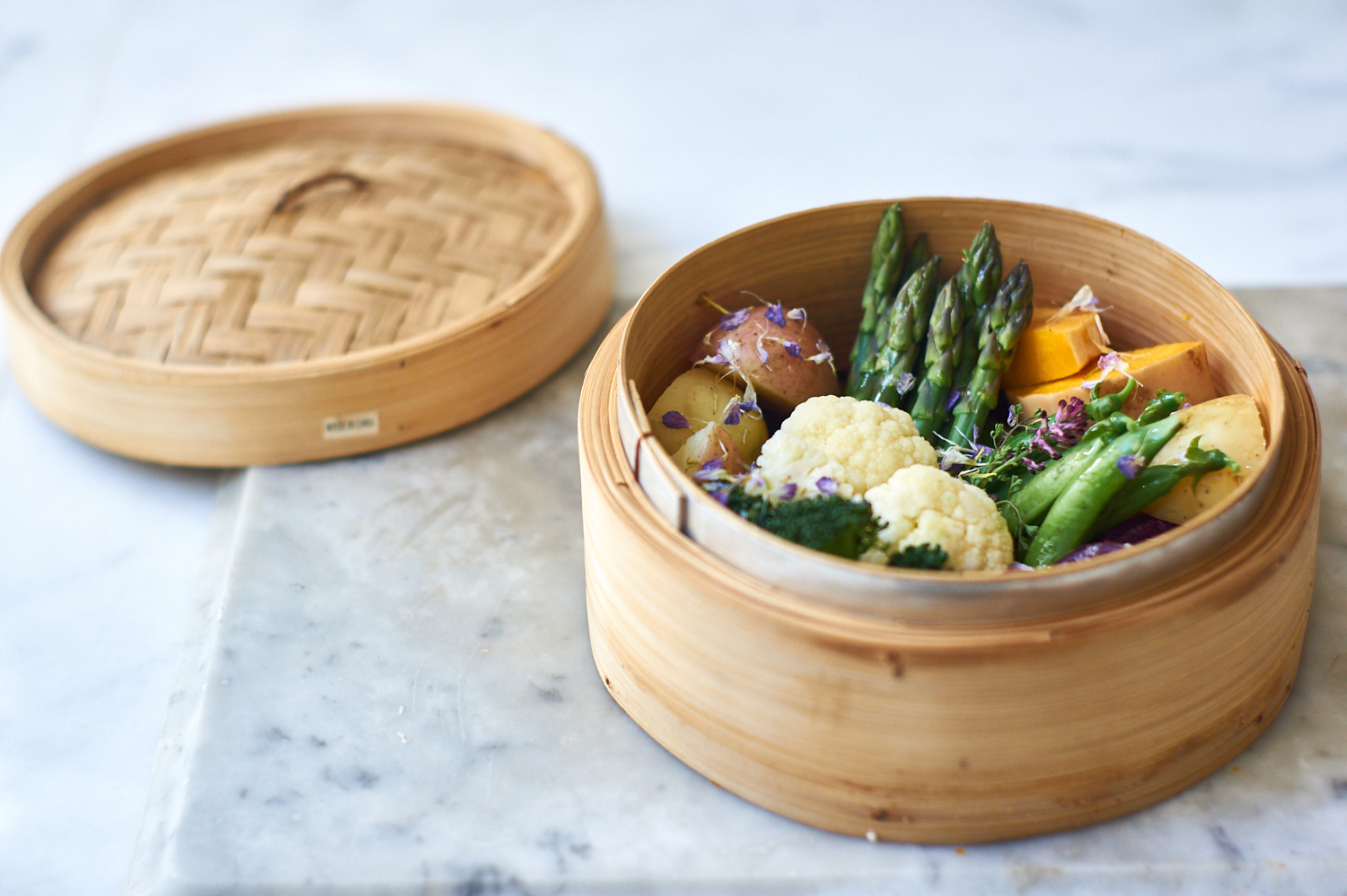
I eventually graduated to a ceramic steamer, and also picked up this Mushi Nabe, donabe steamer. Both are nice because you can make a broth or curry in the base, and then use steam the ingredients up above at the same time. Any of the steamers make a nice jump from cooking to table. If you want to expand beyond steaming vegetables, you can also steam everything from dumplings and tofu to eggs, tamales and certain rices.
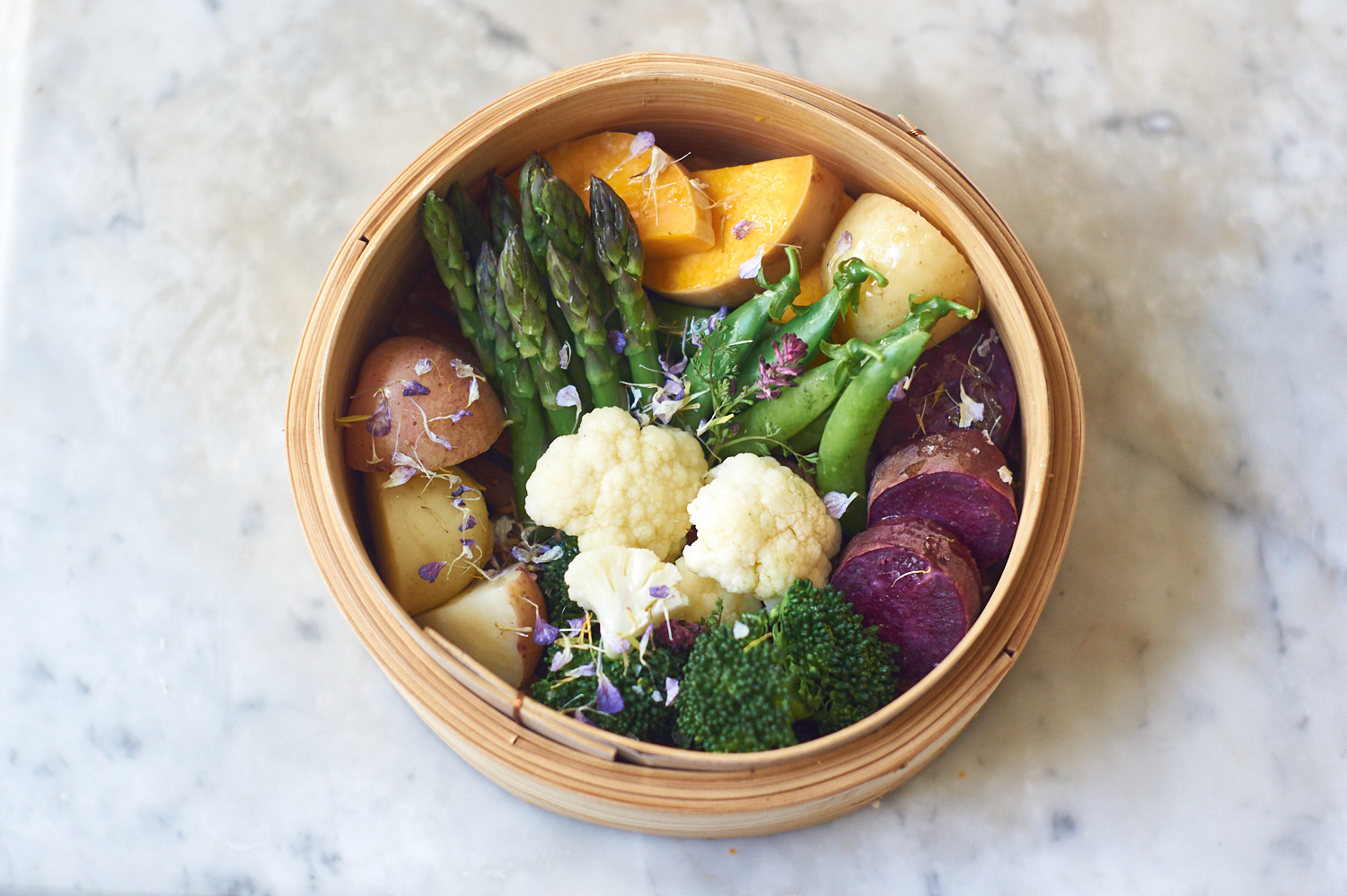
Some Tips on Steaming Vegetables:
- While steaming with water is most common, I’ve also played around using miso broth, vegetable broth, vegetable dashi, or tea in place of water. Each imparts a different scent and flavor to the vegetables. More times than not though, I use water.
- Arrange your slowest cooking vegetables in the bottom basket, working up to the quickest. Another time saver is to get your densest, slowest cooking vegetables started in in the bottom tray, while you prep the quicker cooking vegetables for the mid and top baskets. Place the lid on whatever basket is on top at the time.
- Some people line their steamers with cabbage leaves or parchment. I don’t bother, placing the vegetables directly on the steamer instead. I like how it seems to keep the steam circulating. A quick scrub with hot water and the rough side of a sponge makes clean-up simple.
- When using the bamboo steamer, you can use a wok (steamer sits above the simmering water) or wide skillet (I set the steamer directly in a shallow skillet of simmering water)…A wok is more traditional, and easier on your steamer, but both techniques work well.
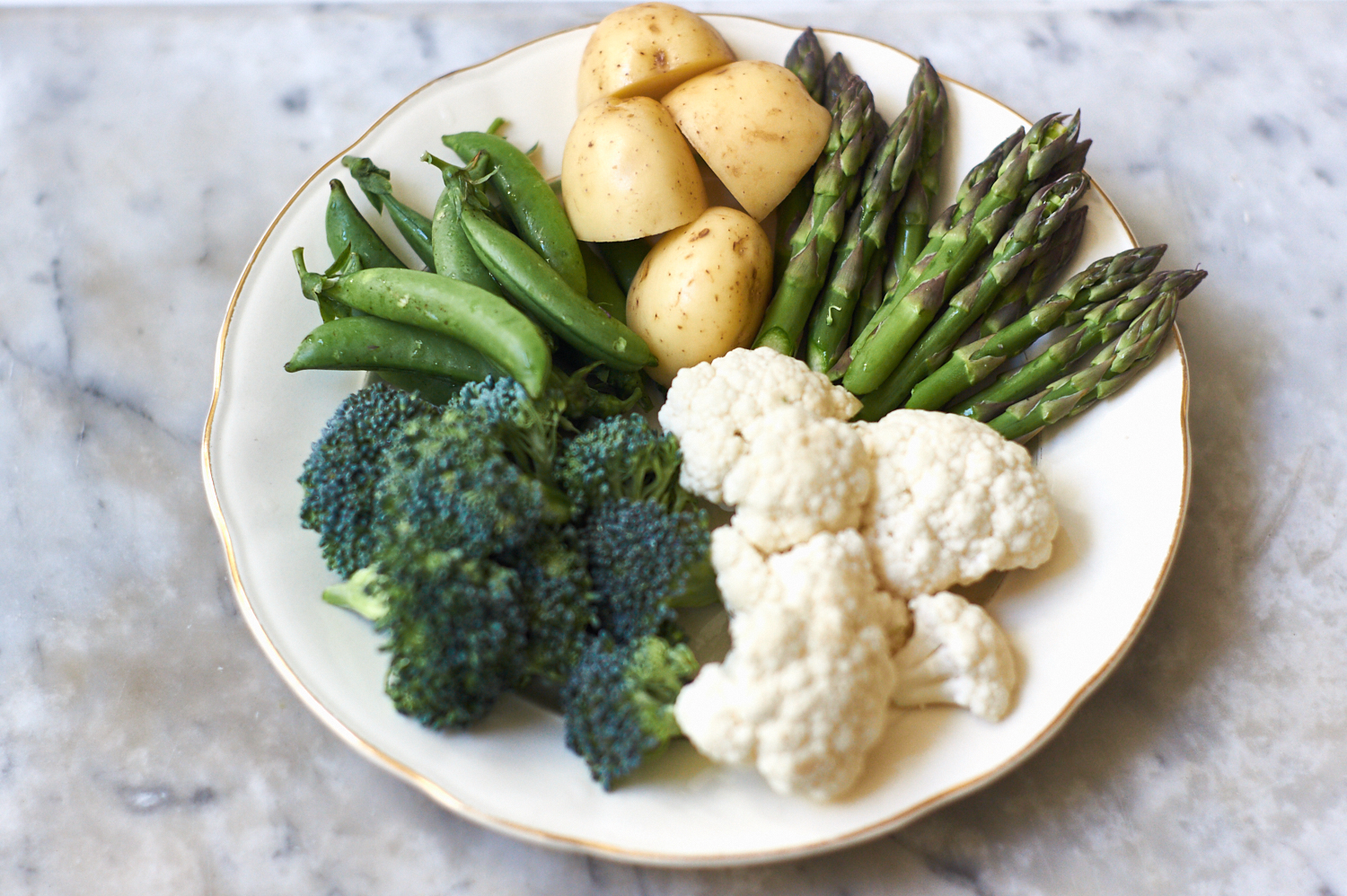
So, less of a recipe, and more of a reminder today of how good the most basic preparations can be. A few years after I initially posted this, I did another deeper dive into Using your Underutilized Steamer. Have fun! -h
Continue reading Steaming Vegetables on 101 Cookbooks



Social Plugin